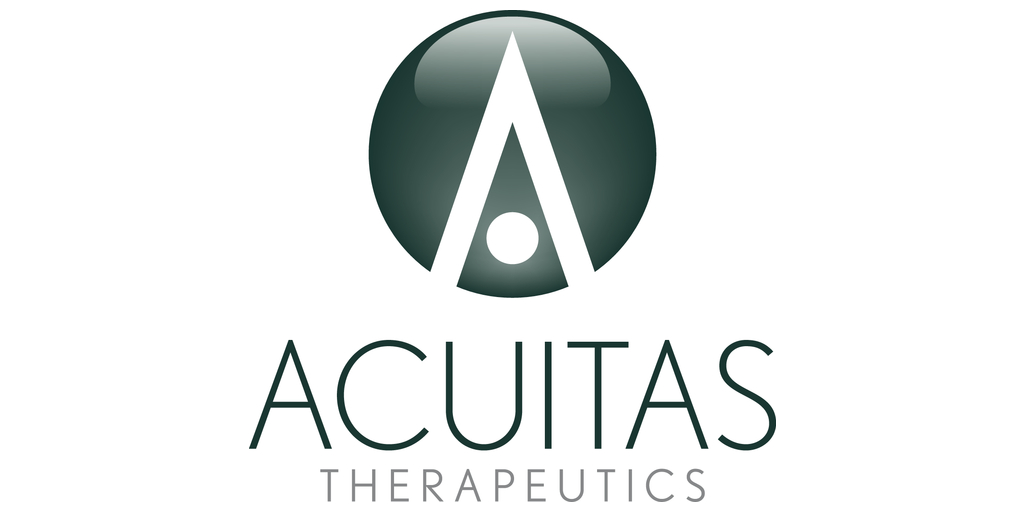- Acuitas’ LNP enabled delivery of three doses of a personalized CRISPR therapy with no adverse events to an infant patient with severe urea cycle disorder
- Athebody® DARPin-conjugated LNP resulted in highly specific mRNA delivery to CD8+ T cells, achieving up to 98% binding and 90% expression in human blood samples
- Acuitas’ lead LNP were highly active in NHP, and exhibited consistent and predictable pharmacodynamic, pharmacokinetic and toxicity profiles with repeated monthly administration
- PXB-mice validated as a relevant preclinical model for LNP delivery and human-specific responses to mRNA-LNP therapies, with doses up to 5.0 mg/kg being well-tolerated
VANCOUVER, British Columbia--(BUSINESS WIRE)--Acuitas Therapeutics, a global leader in lipid nanoparticle (LNP) delivery systems for the acceleration of partners’ clinical development, recently showcased its latest development work in next-generation LNP delivery vehicles at the 2025 American Society of Gene & Cell Therapy (ASGCT) annual meeting in New Orleans. Alongside this, Acuitas’ partners at the Children’s Hospital of Philadelphia (CHOP) and the University of Pennsylvania presented a groundbreaking single-patient clinical trial at the conference, evaluating a personalized CRISPR gene-editing therapy.


Specifically, Acuitas’ key findings presented at ASGCT, through two poster presentations and one oral presentation, highlight different aspects of the company’s research. These include expanding the range of targets for LNP delivery by incorporating DARPin ligands — as demonstrated through in vivo T-cell delivery — and the development of more predictive mouse and nonhuman primate (NHP) models to assess factors related to delivery efficiency and safety.
“At Acuitas, we’re incredibly proud of the progress we’ve made in enhancing the safety and efficacy of our lipid nanoparticle delivery systems,” said Dr. Thomas Madden, President & CEO of Acuitas Therapeutics. “The data we presented at ASGCT, combined with our collaboration with Children's Hospital of Philadelphia and the University of Pennsylvania, among others, continues to validate the strong safety profile of our LNP platform — particularly its ability to be safely redosed, which is critically important in a single patient clinical trial. We’re continually advancing our LNP formulations to expand targeting beyond the liver, to enable safe repeat dosing, and to provide other innovative solutions that support our partners across a broad range of therapeutic programs.”
Acuitas’ LNP Formulation Used in Single-Patient Clinical Trial for a Personalized CRISPR Therapeutic
In a landmark clinical trial, CHOP and the University of Pennsylvania, with innovations from Acuitas, successfully delivered the world’s first personalized LNP-delivered CRISPR gene-editing therapy to treat an infant with urea cycle disorder (UCD). Leveraging the combined expertise and capabilities of all partners, including payload manufacturing from Aldevron and Integrated DNA Technologies (IDT), the therapy was developed, manufactured and delivered to the patient in just six months — an unprecedented achievement in the field of gene-editing therapeutics.
This study, recently published in The New England Journal of Medicine, investigated a proof-of-concept personalized CRISPR therapy for an infant with UCD — a genetic condition in which the patient is unable to process protein properly, leading to the accumulation of high levels of ammonia in the blood, resulting in serious health problems, or even death. The therapy was composed of an mRNA encoding a CRISPR enzyme and guide RNA, encapsulated in Acuitas’ LNP formulation composed of ionizable lipid ALC-0307™ and PEG-lipid ALC-0159™. The therapy was administered to the patient at three separate timepoints with no adverse effects. These results validate Acuitas’ LNP platform for delivery of next-generation gene-editing therapies, particularly in patient-specific contexts.
“What made this collaboration exceptional wasn’t just the science — it was the shared commitment to transforming how patients receive care,” said Dr. Madden. “Working alongside Children’s Hospital of Philadelphia, University of Pennsylvania, Aldevron, and IDT, we aligned our capabilities to deliver a personalized CRISPR therapy in an impressive six months. This model of cross-functional partnerships establishes a blueprint for how future personalized therapies can be co-developed efficiently, safely, and with direct patient impact in mind.”
Acuitas Therapeutics’ Research Presented at ASGCT
Extrahepatic LNP Delivery Using Proprietary Athebody® DARPin-Conjugated LNP Formulations
To expand LNP delivery beyond the liver, Acuitas evaluated an “active” targeting approach to LNP delivery using Athebody® designed ankyrin repeat proteins (DARPins) — antibody mimetic proteins that act as high-affinity and high-specificity ligands for delivery to specific target cells. The results seen were:
- Non-targeting LNP formulations showed <2% engagement in murine lymphocytes
- DARPin-conjugated LNP achieved up to 86% binding and 59% transgene expression in murine CD8+ T cells
- In human CD8+ T-cell samples, the DARPin-conjugated LNP achieved ~98% binding with 46% to 90% expression
“These results represent a significant step forward in enhancing the precision of LNP therapeutics,” said Dr. Ying Tam, CSO of Acuitas Therapeutics. “By utilizing targeting ligands such as Athebody DARPin in our LNP formulations, we’ve enabled targeted mRNA delivery to specific target cells such as CD8+ T cells. This research sets the stage for new therapeutic strategies for many other potential beyond-the-liver indications.”
Improved Mice and NHP Models for Better, Safer LNP-Based Delivery
In an NHP study, presented in an oral abstract session, three lead LNP formulations were given intravenously to NHP at 0.5 or 1.5 mg/kg monthly for three months. Results showed that the LNP formulations were highly active using two different mRNA payloads, and exhibited consistent pharmacodynamic, pharmacokinetic and toxicity profiles with repeated administration. Histopathology revealed mild, non-adverse, and predictable effects in the liver, spleen, and adrenal glands, supporting the feasibility and safety of the LNP.
To complement these findings and address species-specific limitations in current models for investigating LNP delivery, Acuitas presented a poster that evaluated PXB-mice — a humanized liver model — for their predictive utility in mRNA-LNP delivery and development. Three LNP candidates (LNP07, LNP09, and LNP13) were assessed, with LNP13 showing the greatest activity, and excellent tolerability at doses up to 5.0 mg/kg. Broad liver distribution and slightly delayed mRNA expression in human hepatocytes were observed, reinforcing the model’s value in studying human-specific responses to LNP-based therapies.
More information on these findings can be found on the Acuitas website.
About Acuitas Therapeutics
Acuitas Therapeutics is a global leader in lipid nanoparticle (LNP) technology and partners with pharmaceutical and biotechnology companies, as well as non-governmental organizations and academic institutions, to advance nucleic acid therapeutics into clinical development and commercialization. Acuitas’ clinically validated LNP technology is applied in the Pfizer-BioNTech COVID-19 vaccine, COMIRNATY®, and Alnylam Pharmaceuticals’ ONPATTRO® for the treatment of transthyretin amyloidosis. Current efforts focus on enhancing LNP to advance novel gene therapies and identifying potent new lipids to enable partners to develop vaccines for infectious diseases, multivalent vaccines, and novel therapeutic vaccines against cancer, including personalized cancer vaccines.
For more information, visit www.acuitastx.com.
Contacts
Media Contact:
Jakub Cikowski
HDMZ
acuitas.pr@hdmz.com
Canadian Media Contact:
Ruth Atherley
AHA Creative Strategies Inc.
ruth@ahacreative.com




